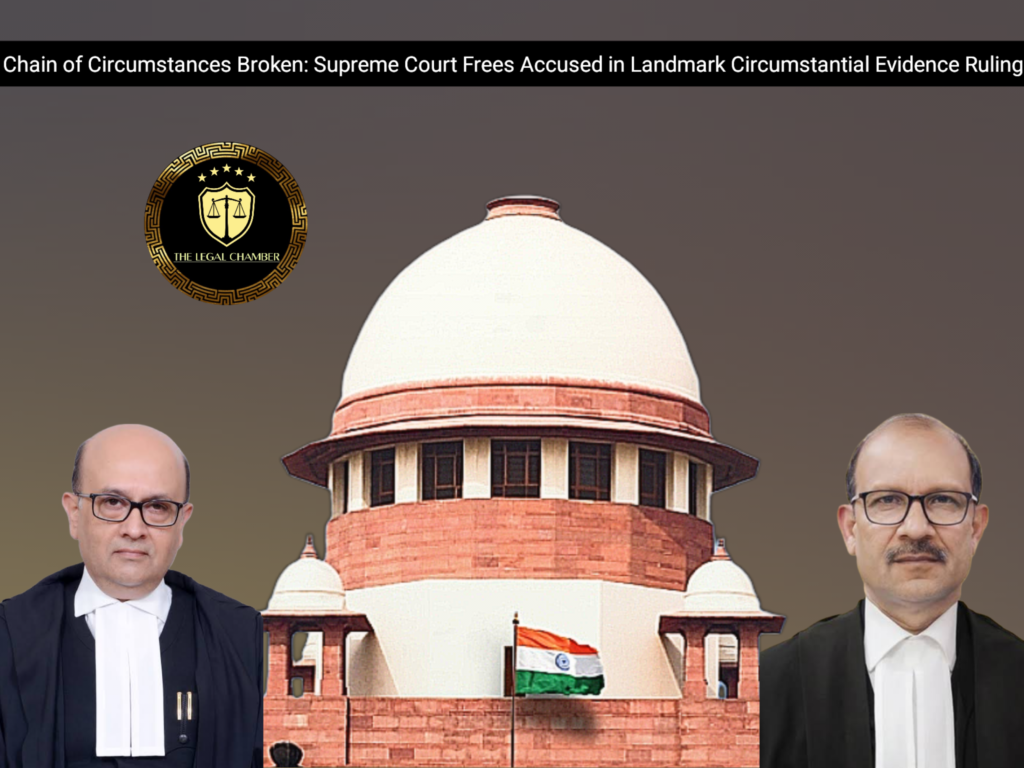
Facts Of The Case:
The case involves the murder of Balwant, whose body was discovered in a waterworks tank in Hisar on December 23, 1997. His father, Har Nath (PW-11), identified the body and filed a complaint, leading to an FIR. The prosecution alleged that the accused—Shanti Devi, her son Rajbir, and Veena—murdered Balwant due to a property dispute, as Shanti Devi was a tenant in his house, and an illicit relationship between Balwant and Veena. The case was built on circumstantial evidence, including motive, last seen together, extra-judicial confessions, and recoveries. A witness, Krishan @ Kuli (PW-15), claimed to have seen the accused quarrelling with the deceased on the night of the incident. The prosecution further relied on disclosure statements leading to the recovery of weapons and a blood-stained bedsheet. However, the forensic report found no human blood on the weapons. The trial court and High Court convicted the accused, a decision subsequently appealed in the Supreme Court.
Procedural History:
The procedural history began with the conviction of the accused-appellant and others by the Additional Sessions Judge, Hisar, on January 16, 2003, for offences under Sections 302/34 and 201/34 of the IPC. Their appeals to the Punjab and Haryana High Court were dismissed by a Division Bench on May 24, 2024. The accused-appellant, Shanti Devi, then filed the present criminal appeal by special leave in the Supreme Court of India, which was registered as Criminal Appeal No. 2861 of 2025. The Supreme Court, after hearing the appeal, allowed it, acquitting the appellant and also extending the benefit of acquittal to the non-appealing co-accused.
READ ALSO :Who Pays for Unpaid Power Bills? Supreme Court Explains ‘Regulatory Asset’ Mess and Orders a Fix
Court Observation:
The Court observed that the prosecution’s entirely circumstantial case failed to meet the established legal standards from Sharad Birdhichand Sarda. It found the alleged motive, based on tenancy and an illicit affair, was unsubstantiated and contradictory. The evidence of last seen and extra-judicial confessions was deemed unreliable and from untrustworthy, planted witnesses. The purported recoveries were discredited as the forensic report found no human blood on the weapons, rendering them inconsequential. Consequently, the chain of circumstances was incomplete and did not unequivocally point to the guilt of the accused.
Final Decision & Judgement:
The Supreme Court allowed the appeal, acquitting the appellant-accused Shanti Devi of all charges. The Court concluded the prosecution failed to prove a complete chain of incriminating circumstances, rendering the conviction unsustainable. Exercising its plenary powers, the Court also extended the benefit of acquittal to the non-appealing co-accused, Rajbir, and directed their immediate release from custody if not required in any other case. The impugned judgments of the High Court and the trial court were quashed and set aside.
Case Details:
Case Title: Shanti Devi vs. State of Haryana Citation: 2025 INSC 987 Criminal Appeal No.: Criminal Appeal No(s). 2861 of 2025 Date of Judgement: August 06, 2025 Judges/Justice Name: Justice Manoj Misra and Justice Sandeep Mehta
Download The Judgement Here